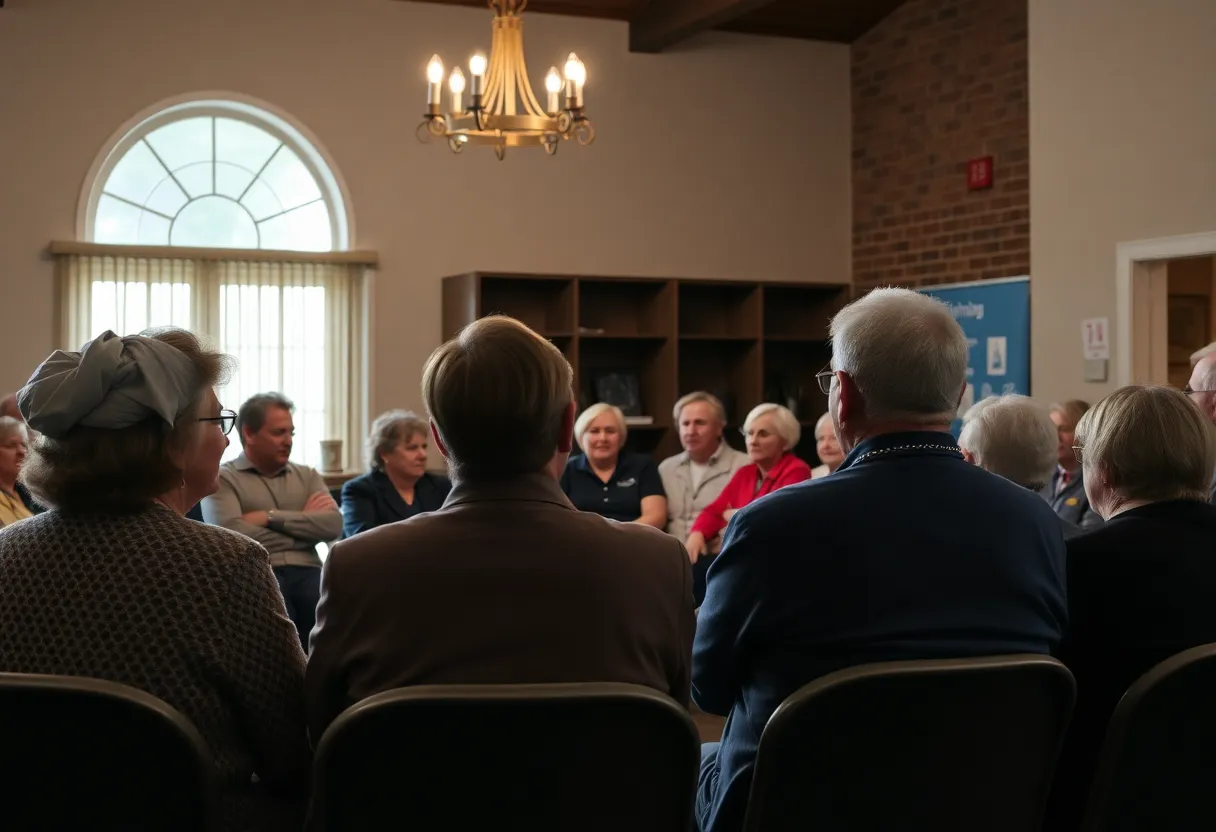News Summary
In a contentious election, Justice Allison Riggs’ victory over Jefferson Griffin is now under legal scrutiny as the N.C. Supreme Court blocks certification. Griffin alleges nearly 60,000 ballots were improperly counted due to missing information. The court will review the situation with briefs due by January 24, raising concerns about voter access and election integrity in North Carolina. As the political landscape shifts, supporters of Riggs defend her legitimacy against claims aimed at undermining her victory.
N.C. Supreme Court Puts the Brakes on Justice Riggs’ Election Certification
In one of the most contentious elections in recent memory, Justice Allison Riggs has found herself at the center of a legal storm. The Democrat narrowly defeated Republican challenger Jefferson Griffin by just 734 votes, but Griffin isn’t ready to throw in the towel. He has launched a major appeal, raising questions about nearly 60,000 ballots that he argues should have been tossed due to missing information, such as driver’s license numbers or the last four digits of Social Security numbers.
The Supreme Court Steps In
This drama has now reached the North Carolina Supreme Court, which is currently dominated by a Republican majority. In a surprising twist, the court has issued a temporary stay that blocks the state elections board from officially certifying Riggs as the winner. This decision has raised eyebrows and sent shockwaves through the political landscape.
A Deep Dive into the Details
The court’s directive means that they will be considering briefs until January 24, paving the way for what could be a significant ruling in the near future. Although Justice Riggs did not take part in the court proceedings, Justice Anita Earls expressed her opposition to this level of judicial interference, suggesting that the democratic process should remain untouched by the courts.
Adding to the complexity, Griffin’s challenges were previously dismissed by the state elections board, which was controlled by Democrats. Griffin claims that the elections board has not been fulfilling its responsibilities by failing to remove ineligible voters from the rolls, pointing to the law that mandates voters provide certain identifying information.
Supporters Rally Behind Riggs
Supporters of Riggs are standing firm in their conviction that her victory is legitimate and defensible. Many believe that Griffin’s legal maneuvers are simply a tactic to undermine the election results. The issue is particularly sensitive as it disproportionately affects Black voters, who have been found to be more likely to have their ballots contested.
As the tension mounts, the Democratic Party has not hesitated to accuse Griffin of attempting to “overthrow” the will of the voters. They argue that the focus should be on ensuring that all eligible ballots are counted rather than dismissing them based on technicalities.
Spotlight on Voter Access
At the heart of this legal battle lies a larger conversation about voter access and election integrity. Griffin and his supporters assert that they are merely fighting to uphold existing election laws, while critics point out the potential for such challenges to disenfranchise voters. This dichotomy reflects significant divisions in North Carolina politics and is a vivid illustration of the increasing tensions surrounding elections.
The Road Ahead
With the state Supreme Court taking the mantle, the future of Justice Riggs’ victory now hangs in the balance. Should the 4th Circuit Court not take immediate action, it will be up to the Supreme Court to decide whether her narrow win stands or if Griffin’s challenge will overturn the results.
This ongoing saga serves as a test case for the state’s electoral integrity, laying bare the urgent need for clarity and uniformity in the state’s voting laws. As much as the election results matter, so do the principles behind democracy—an issue that will likely continue to be debated as we wait for the court’s final decision.
Stay tuned as we follow this unfolding story, where every vote and every challenge has the potential to change the political landscape of North Carolina!
Deeper Dive: News & Info About This Topic
- Washington Post: N.C. Supreme Court Puts the Brakes on Justice Riggs’ Election Certification
- News & Observer: Supreme Court Election Challenge in North Carolina
- New York Times: North Carolina Supreme Court Holds Off on Election Certification
- Reuters: North Carolina Top Court Blocks Democrats’ Certification of Election
- Carolina Journal: N.C. Supreme Court Grants Stay on Riggs Election Certification







